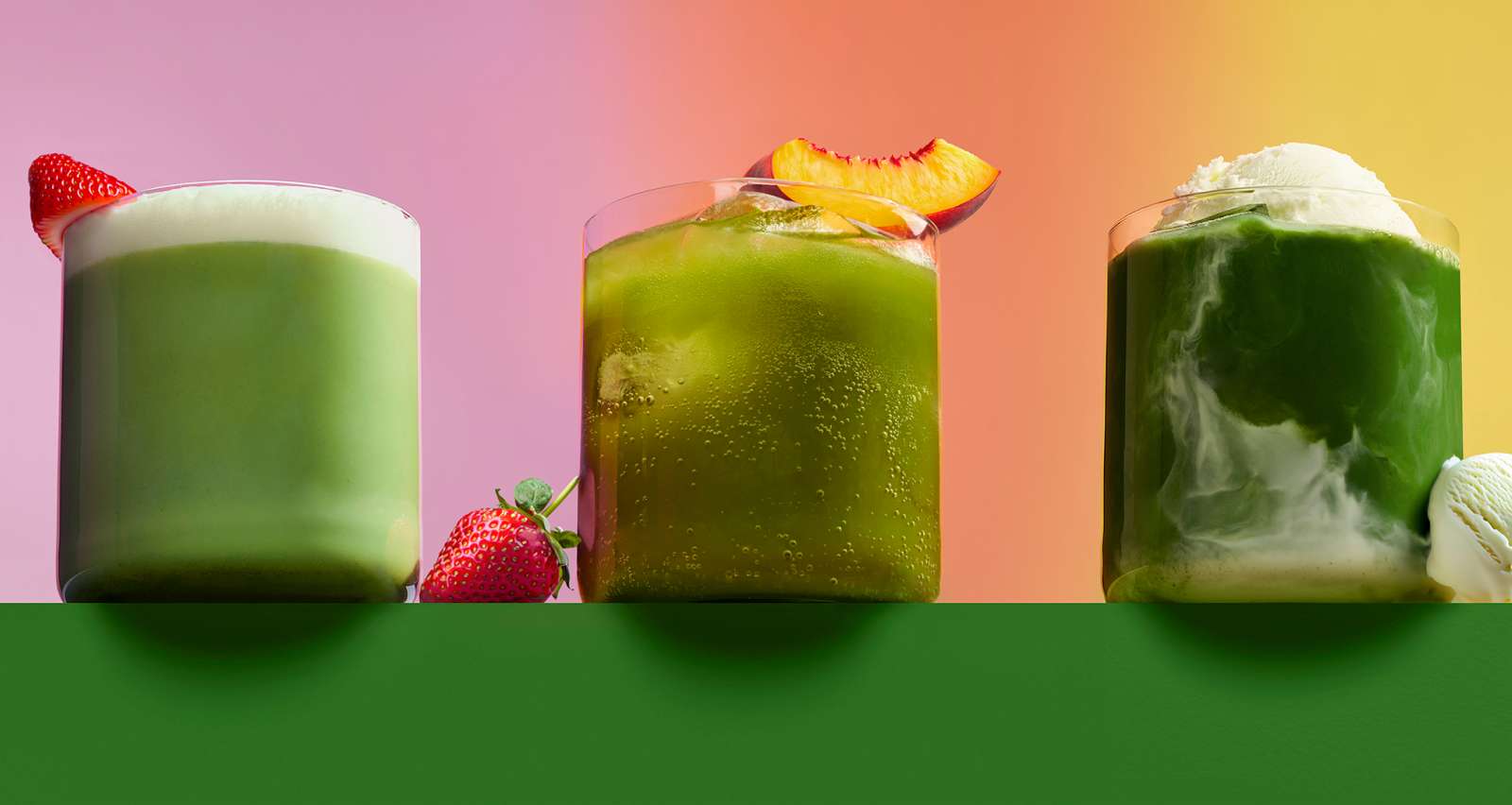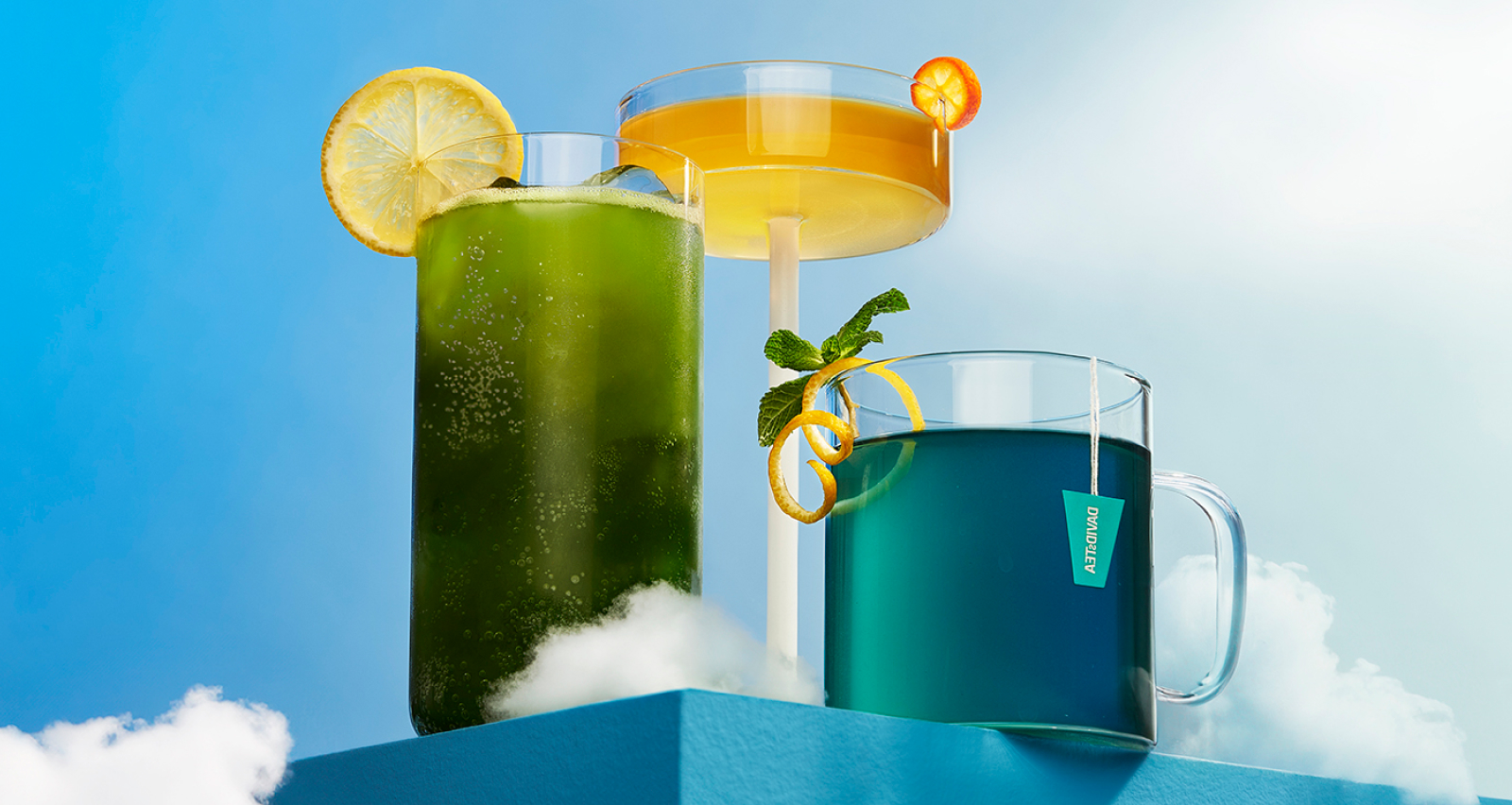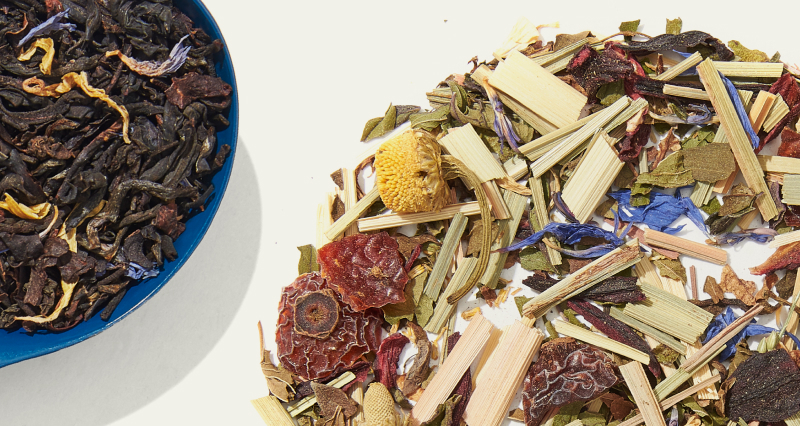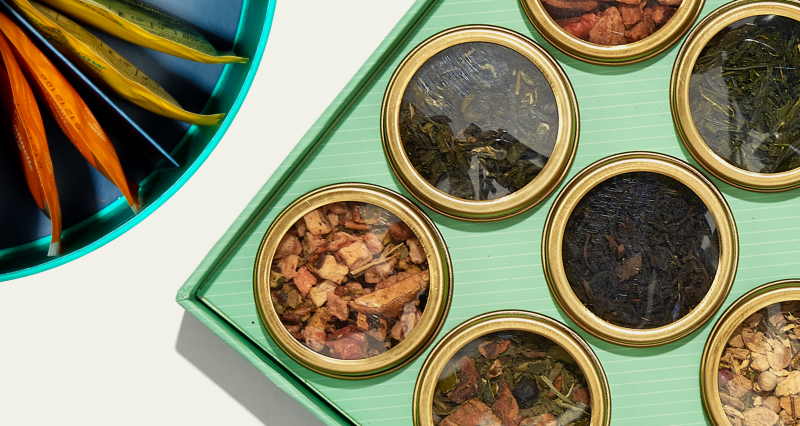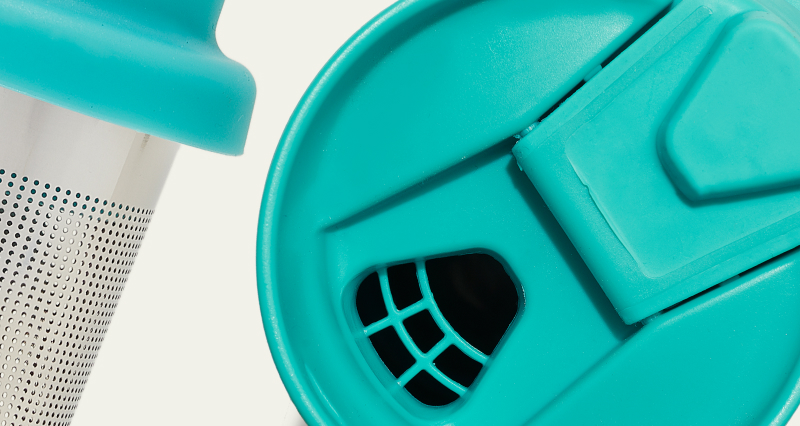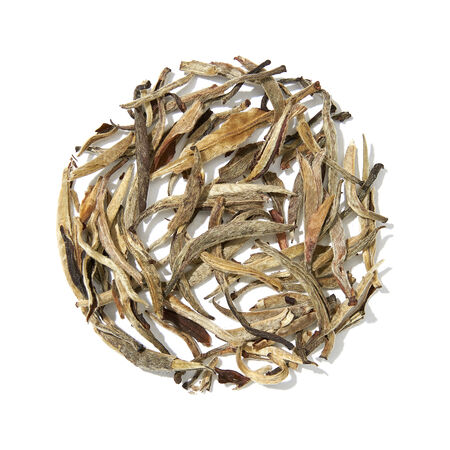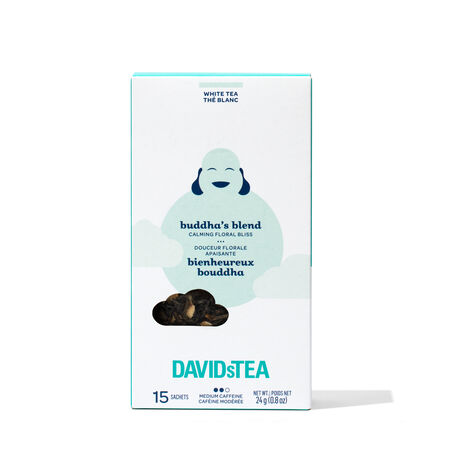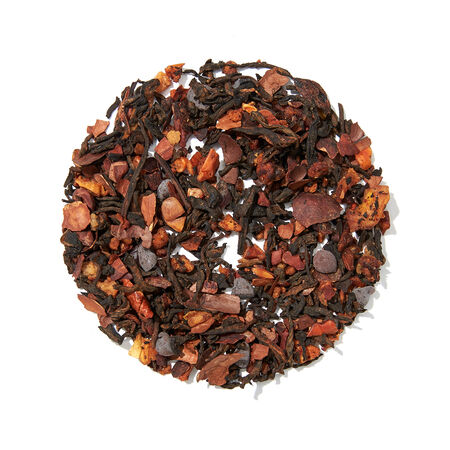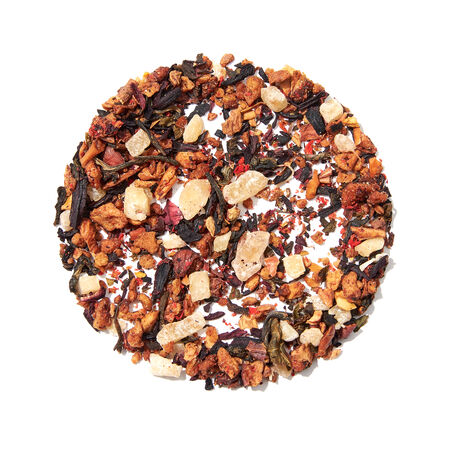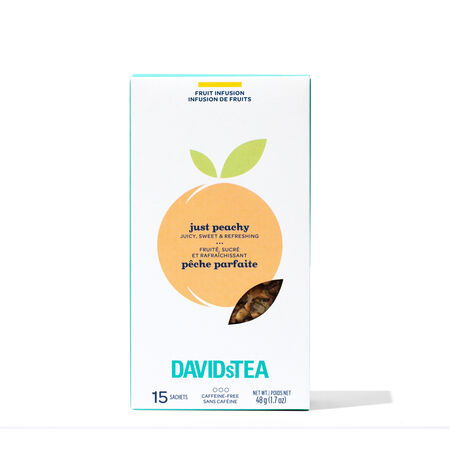season 2 | ep. 2
white tea
& how to blend it
with Billy Dietz

steeping together podcast
- season 2 | Ep. 2
white tea & how to blend it
with Billy Dietz
episode transcript
Marika de Vienne 0:19
Welcome, everyone, to a special mini episode of Steeping Together where we explore a specific topic within the vast world of tea with tea enthusiasts. I'm your tea-obsessed host Marika, and I cannot wait to get into today's topic. Okay, look, I'm going to be honest with you, dear listeners, because that's how I roll. I have spent 20 years in the tea and spice industry. I lived in China for six years exploring the world of tea. I have tasted 1000s of cups from hundreds of places, I have discovered new and amazing teas I never thought I would like, and have had my own taste biases challenged more times than I can count. But you know what I still don't get? White tea. I like, I don't, I don't get it! It's too subtle. It's too gentle. It does not fit with my personality, and I am tired of trying to make it work for me. But the point of this podcast, and of life in general, quite frankly, is to explore! To figure out why you don't like something is as important if not more than understanding why you do. So in order to keep growing as a human I have enlisted the help of Billy Dietz to help us understand white tea a bit better, and more to the point, understanding how this most understated of teas is actually a challenging and most welcome tea base when blending. Welcome Billy.
Billy Dietz 1:42
Hello Marika, it's good to be back with you.
Marika de Vienne 1:44
So happy to have you back. Could you just give us a brief introduction for anyone who didn't hear your first appearance on Steeping Together?
Billy Dietz 1:51
Yes, indeed. A very brief intro. My name is Billy Dietz, I fell in love with tea when I was 15, have not stopped drinking or obsessing over it since. And all of a sudden, I found myself as the Director of Research and Development for DAVIDsTEA, which lucky for me isn't really a job.
Marika de Vienne 2:11
Not many people get to say that. But it is true. I think you are working your heart's passion, you are able to explore something that you are personally professionally passionate about. You're a very, very lucky man. And we're just lucky to have you again. So thanks again for joining us. And helping me out here, Billy, because oh boy, oh boy. I have tried white tea. And it's not to say that I don't like all white teas. But of all the tea bases, it is the only tea base that I can say I've only liked maybe four or five cups of in my life. I tried a Kenyan white tea years ago that knocked my socks off. I didn't expect to like it. But it had peach notes that I was delighted and surprised by, it re-steeped quite well, which is not the case for a lot of white teas. And I really, really enjoyed that cup. But if somebody offers me a cup of white tea, I'm polite, so I'll drink it. But I'm not gonna like enjoy it. And the question of how do you blend a tea that historically or more commonly is known as being very delicate in flavour, very subtle and nuanced? How do you then blend with this tea? I just, I have so many questions. So are you ready for me to just... assault you?
Billy Dietz 3:35
Let's do this thing.
Marika de Vienne 3:37
Okay, so let's start by explaining what white tea is. Do you want to give a kind of basic intro of what white tea is?
Billy Dietz 3:44
I will indeed. White tea on paper is the simplest form of tea processing, it is plucked, it is withered and it is dried. And that is it.
Marika
Right, three steps... Exactly.
Billy
On paper. What I find really interesting about white tea is that of all the tea types, it is the only tea type that skips a very particular step in processing and that is the fixing or the "kill green" step. And I think people understate what that does to the category as a whole. Tea will, if not fixed, tea will continue to oxidize. So white tea becomes this naturally evolving and changing tea type that is sort of like uncontrollable right? I mean, you can get into some specifics of the processing where you can better control let's say that temperature, humidity and everything to bring out okay, a more green type white tea, or if you want it a little bit more oxidised you tweak the parameters, whatever. But what that does is all of a sudden open up white tea to not just this one single like delicate of what we think of as white tea. It almost bridges more of oolong where you have this range of oxidation. And that's something I think is very understated and not talked about enough with white tea.
Marika de Vienne 5:06
It's understated that I've literally never considered it in those terms. And not to say like, oh, look at me, I'm such an expert, but I have spent quite a bit of my adult life studying this. And I never really considered white tea to be almost in that same quantity of varieties available as oolong, you know, listeners of this podcast know, I'm obsessed with oolong teas, and it's because of the variations of forms in it. But it is true that you can find that in white tea as well.
Billy
Totally.
Marika 05:37
So here's how I've always understood why tea. White tea is essentially the bud, or the bud and the two or three or four first leaves attached to that bud. And it is like you said, withered, oxidized, life is dry, not - just dried, and life is good, it's over. Very, very simple process. So simple that I almost added an extra step in my enthusiasm to describe it. Very, very simple process. And the tea that is sold as white tea, that is un-fragranced is generally very subtle, very expensive, and I've always heard that it's low in caffeine, which is not necessarily true. So it seems like there's still a great mystery around what white tea is. And there are grades of white tea, you told me this the other day that blew my mind. There are grades of white tea that are not sold commercially on their own in a large market, like in supermarkets or even specialty tea stores that are almost reserved exclusively for blending because of the particular flavours and aromas and mouthfeel that they have.
Billy Dietz 6:44
Indeed, we did dive into this. And this is the conundrum of rolled white tea. Primarily what we see and use in blending is rolled white tea. So it goes through a shaping process, thus encouraging a bit of natural oxidation, which gives her old white tea a bit more body and less of this delicate type of, you know, air that white tea normally has. So it gives a bit of astringency, it gives a little bit more character. But the nice thing and what it lacks and how it differentiates a lot from blending with say a rolled green tea is that it doesn't come necessarily with the same vegetal intensity that green tea can have. So you still have a character and astringency and true, let's say form of tea, taste in your cup, but with layered flavour. So it works quite well, especially when you really want the flavour to shine versus maybe the tea base to shine in a blend. Does that make sense?
Marika de Vienne 7:59
It makes a lot of sense. It does make me question why only a certain type of white tea, be it specialty stores, like I said, is marketed and sold to the public. Because as I said, I don't particularly like white tea and I'm thinking of like by Bai Hao Yins and or Bai Mu Dans which you'll find in any good specialty tea shop. Very delicate, the buds are gorgeous, you know, they have this beautiful white duvet on them. And the notes that you know you're always going to more or less get is very hay, lots of very dried hay flavour and then sometimes you'll have peach notes and sometimes you'll have more vegetal notes to your point.
Billy
Sugar cane,
Marika
Yes! Sugar cane, that kind of mild sweetness, but these notes are always very, very like, not hidden, but you got to really work to find 'em.
Billy
You have to reach.
Marika
You gotta reach, which is, it was always the extra work with white tea I didn't appreciate. I don't know if that's my inherent laziness, but I was like how much do I have to work to discern why you're a thing? The teas that you're describing, these rolled white teas that are used in blending, I feel like as a consumer, I probably would have enjoyed that more because they sound a little bit more complex a little bit more vivacious, a little bit more in line with what I enjoy. Am I wrong in thinking that or? Or why isn't this every... Why are you the first person to shine a light on this for me, Billy?
Billy Dietz 9:33
I think that these teas, if you really searched you could probably find them on their own. But there is not really a name in it. You know, the White Peony style and the Silver Needle style there. There is an air of authority within the world of white tea that rolled white tea doesn't necessarily have.
Marika de Vienne 9:55
You're saying it's a classist issue? That we're, that we're...ha I like how you threw your hands up, like do not involve me in this conversation! You're like, nope, not going there!
Billy Dietz 10:07
But there's also a matter of price too, right? Like you can command a better premium on a White Peony or a Silver Needle style, than you could with this rolled. Which brings us to another challenge of blending with white tea, and that is cost.
Marika
Yes!
Billy
To keep your blend affordable, on a more - accessible on a more everyday basis. That is a big consideration. Have we blended some extravagant white teas in our day? Absolutely.
Marika de Vienne 10:35
We're DAVIDsTEA, we don't shy away from that kinda stuff!
Billy Dietz 10:38
Has the world ever seen these blends?
Marika & Billy 10:40
Noo!!
Marika
Just just too expensive.
Billy Dietz 10:44
It's too expensive.
Marika de Vienne 10:45
It's just inaccessible to people and that's not what we're about.
Billy Dietz 10:49
And there's limited quantities of those fine finer teas, I'll say, that are going to be more reserved for drinking straight, because there is that customer that really enjoys white tea for whatever the reason.
Marika de Vienne 11:04
For whatever reason, and I'm so happy for anyone who's found their tea family and found their tea, but I think I'm more interested in trying rolled whites now on a personal level, I'm kind of more intrigued. So let's get back to like blending specifically. I mean, here at DAVIDsTEA we're known for a great many things. One of the things we're known for is the absolute intensity behind a lot of our blends, not all of them. I've been drinking a very light tea all day that we that we make here. But there there are the Hazelnut Chocolates, there are the, you know, there are the more intense blends. How do you go about blending with a white tea? Like why would you blend with a white tea?
Billy Dietz 11:48
I think there are a few reasons and one of the reasons we touched on a little bit was using the rolled white tea gives you enough of a, let's say character and air of tea and a presence of tea. However, it doesn't command necessarily this like up-front flavour that like a Sencha style in a blend would commend. So with that said, you can have a, you know, tea base, caffeinated, whatever type blend you want, but the star attribute to the end consumer could be more the flavour of whatever you want. I don't know let's say a peach for instance, like a white peach type flavour. So you can have this nice base of astringency almost mirroring the astringency of peach skin, delicate but enough to make you craving more, but then like the peach note is your...
Marika de Vienne 12:42
It's not a juicy peach you're saying, it's the peach note is the star... Yes okay.
Billy Dietz 12:48
The floral peach. So really playing to the characteristics of each of the white teas I think is in best interest. We've tried several blends, anecdotally let's say, with a higher oxidized white tea, or something that wasn't as controlled to preserve the greenness of it. With flavours like buckwheat honey and things like that, which are a lot richer, a lot deeper, and the white tea does provide not astringency in that case, but provides these rich darker, more honey caramel type notes. And anyone who has experienced with aged white tea can definitely link what I'm talking about with those more honey type notes.
Marika de Vienne 13:27
Yeah, what it makes me think of when you're describing this, because that is one of the issues I take with flavoured white teas. Which of the white teas is probably what I drink the most of. Is that I don't always taste the tea, if you know what I mean.
Billy
Absolutely.
Marika
But I do like the mouthfeel a lot of the times because, if what I'm gleaning from what you're saying here is that the type of white tea used could actually elongate and push the flavours that are added to it, to make those like you said be the star of the show.
Billy Dietz 14:02
The whit tea is in the background. They're kind of controlling the monitors and making sure everything sounds good to the to the audience. But they're content, like not necessarily being the main attraction.
Marika de Vienne 14:13
Oh, that analogy, and I'm not exaggerating, that analogy has just completely changed my opinion of white tea. Because you're saying white tea is the unsung hero slash executive producer of the blended final product. I am on board!
Billy Dietz 14:31
Let's go with that. It's something that I, it was very on the fly, but that was not rehearsed. But that, I think that's absolutely the case because you can really play around with more of this, like you said the mouthfeel versus worrying like oh okay, we're going to use a you know, Japanese Sencha as a base, so we're gonna have to play on those oceanic vegetal notes. So how can we balance blah blah - you don't need to do that with a white tea. White tea's gonna help you balance everything anyways.
Marika de Vienne 14:59
White tea's kind of making... Okay this is not something we discussed but the way you're describing it is the way I've always felt about, and I have limited experience in blending, I only did it for a few years. I'm not like you, but it reminds me of the ease of blending with rooibos, where rooibos does a lot of your heavy lifting because it's got like a natural sweetness. It carries a good amount of flavour or spice or anything. Is it the same almost with white tea where the white tea is cooperating with you a lot more than say a green tea?
Billy Dietz 15:34
If you know how to use it, yes, because we've definitely tasted some of these blends that contain that like rolled white tea before and it was certain flavours and in certain concentrations it can be coarse. It can be not this crisp, nice stringency. It can be like, oh, that's dialled up to 11 and we want you to be at a five.
Marika de Vienne 15:57
Like the kind of astringency that like dries your mouth. Yeah, I hate it because I am a huge fan of mild astringency in my teas, but when you drink a tea and your entire mouth goes dry, like this is not the emotion I'm looking for.
Billy Dietz 16:14
So then that begs this question. Or better said, that brings up a next point about white tea, is caffeine content. And so, I don't want to get overly overly scientific here. So let me just try and encapsulate this. White tea has been marketed as being a lower caffeinated tea by weight. It was one of the big marketing things early early on when white tea started to become pretty commercialised in North America. Oh it's more delicate than green tea, it's less caffeine, all of these claims. The one thing to keep in mind, however, is that white tea will usually contain some proportion of tips-
Marika
The buds.
Billy
The buds, the baby leaves. Those buds by weight, and on average, contain higher amounts of caffeine than the rest of the leaves because caffeine is a natural insecticide. So the plant is wanting to protect its babies. Until they're at maturity.
Marika de Vienne 17:20
Yeah the plant is... There's going to be more caffeine in the bud because you want to naturally protect the plant so that it can propagate later.
Billy
Exactly.
Marika
I've been in this business 20 years, as I said, I'd say about half of it, I heard that white tea had almost no caffeine. Where did this come from?
Billy Dietz 17:40
I don't have proof of this.
Marika
You don't want to point any fingers!
Billy
I don't want to point any fingers. But a lot of the white tea that first entered the US market was in tea bag form. And most of it did not contain tea buds. It was more of this leafy white tea grade that was you know, either sifted or whatever, off of some of the higher grades. I think that that was one of the first types of white tea to hit the market and that I could maybe see a scientific reason why. Maybe it didn't have as much caffeine. Because it was not tea buds.
Marika de Vienne 18:15
Right? Wow, it's just there's so... It's amazing to me that we have been working in the industry this long. This product has been around for 1000s of years. And I still feel like every single day I'm learning a major truth bomb about something or another! It's absolutely fascinating. So okay, what's your favourite white tea blend that you've ever made? Released or not? I don't want to know necessarily if it made it to market but like as a blender, as a professional like creator of or engineer of these teas. What's one that you're like, oh, that really hit the spot?
Billy Dietz 18:59
Oh, hmmm I think that my, one of my favourite developments because it's the first one that came to mind that we did, though it is not released, I'll say it's sitting in the coffers somewhere. It is a white tea blend that is buckwheat honey flavoured or it's in that vein of being, having buckwheat honey flavour. But it's not the flavour itself that was what was amazing about this. It was the base of tea that was chosen and the base of tea that was chosen is a Moonlight White white tea from Yunnan. So there's a big argument and I don't want to get into it as a whether it's a pu'erh or whether it's a white tea. There's a whole thing right, but strictly off of how the tea was being processed, by that definition personally I would consider that a white tea. But that is a pretty high oxidized white tea and so it really leaned into that caramelly, like piquant herbaceousness that buckwheat honey has, I don't know how else to put it. It's so pungent.
Marika de Vienne 20:09
Yeah yeah no, I know what you mean. It's not a light honey. It's an amber dark. You know, you're you're living a moment when you're...
Billy
Almost a little bitter.
Marika
Oh yeah, for sure for sure. And just very intense, very, very, very intense.
Billy Dietz 20:21
And it was the perfect stepping stone for that flavour because naturally that tea really had that. I think some of my favourite blends, like we were even talking about in the episode before, is when the tea base really boosts and helps that flavour to shine. Hazelnut Chocolate was the same, it was the pu'erh that made Hazelnut Chocolate be what it is. Just like this blend, this high oxidized white tea with that rich honey note, pushed this flavour and made it more than what it would be on its own.
Marika de Vienne 20:53
Oh my gosh, it's beautiful the way you put it, that it made it more than what it is on its own. It's like the different components let everyone shine just so much more. I feel like this is an argument for diversity. It's an argument for why we should all come together. You know, we are greater than the sum of our parts. I don't know why that made me think of it. Well Billy, I don't know how else to put this. I came into this episode thinking there's no way I'm going to be more interested in white tea when we're done because I've given it the good college try, as they say. And now I really feel like I need to rethink my own prejudices, my own biases and kind of ignore everything I've learned and start from scratch and give white tea a real chance. So you know, thank you so much for doing... it's very rare that you can say somebody come in and really brought a new passion towards something that you abandoned years ago. So genuinely thank you so much for doing that.
Billy Dietz 22:00
It's such a pleasure to talk to you with you always, on mic off mic, doesn't matter. We always get somewhere pretty incredible. And again, some of our parts, we become better than our whole.
Marika de Vienne 22:11
Absolutely. Oh, I love it. And so thank you and thank you for listening to today's mini episode. If you would like to reach us with comments, questions or topics for another mini episode you can do so at steeping.together@davidstea.com or through our website, davidstea.com. Have a great week and happy steeping everyone!
billy dietz

about the guest
Billy’s journey into the tea world began at the early age of 15, when he started his formal education at the Specialty Tea Institute. By 17, he became the youngest Certified Tea Specialist in North America (yes, you read that right!). He went on to study at FONA International, where he completed Flavor 101 and Beverage 101 – two comprehensive courses on the science of flavor, and more specifically, beverage flavor. In August 2013, he obtained his Barista certification from the Specialty Coffee Association of Europe at the Better Barista Academy in Singapore. And by 2014, he became a certified instructor for the Specialty Tea Institute. But if there’s one thing you need to know about Billy, it’s that he has quite the adventurous spirit. His passion for flavour has taken him to many parts of North America, Europe, Asia and Africa where he studied how food and drink are integral to each of their cultures. In 2015, Billy joined the DAVIDsTEA family as a Tea Products Developer. Today, he’s the Director of Research and Development. What exactly does that entail? Well, Billy works closely with our Tea Department to research, develop and create innovative tea blends, like the ones you all love SO much!
